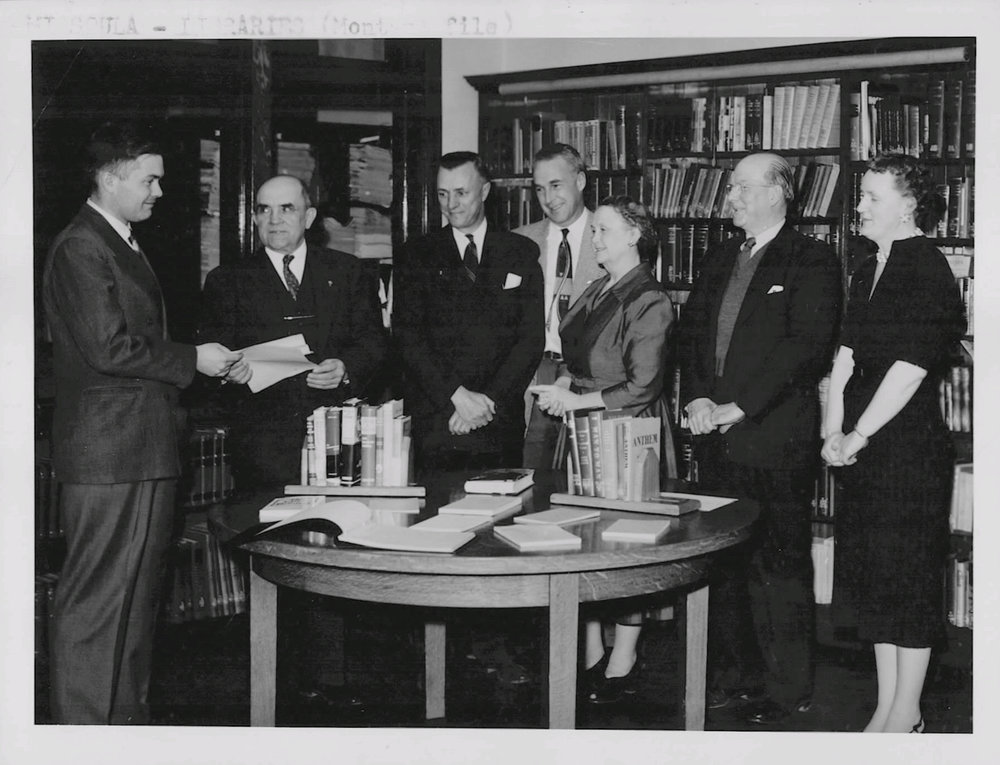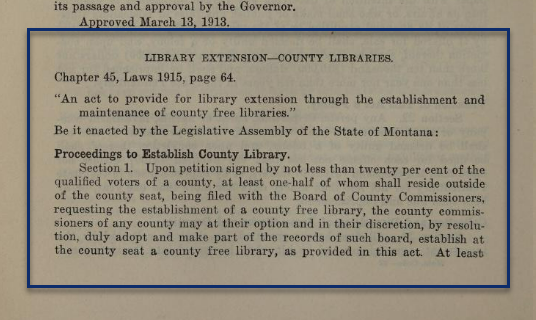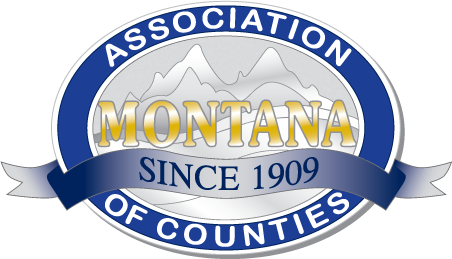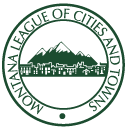Congratulations! You are a Public Library Trustee...Now What?
| Site: | MSL Learn |
| Course: | Trustee Essentials: Responsibilities |
| Book: | Congratulations! You are a Public Library Trustee...Now What? |
| Printed by: | Guest user |
| Date: | Friday, 27 February 2026, 5:06 AM |
A Commitment to Public Service
Public service is a commitment you have made in accepting appointment as a trustee. In order to participate effectively, you are expected to
- serve the public’s interest first
- perform your duties openly with the public
- attend meetings regularly
- come prepared to meetings
- communicate clearly
- have respect for others
All new trustees come to the job with enthusiasm and some trepidation about what to expect. You are not alone! Even some experienced trustees encounter situations and decisions that challenge their understanding of how to proceed.
Knowing the ethical and legal expectations for public service is a great way to ground yourself in both the scope and limitations of the job of a public library trustee.
Please watch this short video produced by the Wyoming State Library a few years ago. It is a little dated fashion-wise, but the humor and information are relevant for us today.
The presenters refer to a series of videos. You're welcome to access them as a supplement to this course in this YouTube playlist.
As you work through this section, keep a list of questions to discuss with your library director. We will also suggest some questions you can use to learn more about the library, your role, and responsibilities. You can download and print this document to keep track of questions and answers.
Purpose of Public Libraries
 The purpose of public libraries is defined in Montana Code Annotated. The origins of the current statute go back to 1915 when the first laws were passed in Montana to provide financial support to create county libraries.
The purpose of public libraries is defined in Montana Code Annotated. The origins of the current statute go back to 1915 when the first laws were passed in Montana to provide financial support to create county libraries.
TITLE 22. LIBRARIES, ARTS, AND ANTIQUITIES
CHAPTER 1. LIBRARIES
Part 3. Free Public Libraries
22-1-302. Purpose. It is the purpose of this part to encourage the establishment, adequate financing, and effective administration of free public libraries in this state to give the people of Montana the fullest opportunity to enrich and inform themselves through reading.
As a Trustee in the 21st century, the importance of giving "the people of Montana the fullest opportunity to enrich and inform themselves" is no less significant than when the first public libraries were established in Montana. Providing access to collections of books was the primary way that trustees could ensure that citizens could "enrich and inform themselves." Funds were spent and policies created to do just that.
Today's libraries fulfill their purpose by providing access to digital resources, a range of services, safe and welcoming facilities, and balanced collections. As in the late 19th century and early 20th century, trustees used funding and policies to provide their community with "the fullest opportunity to enrich and inform themselves."
Questions to Ask the Director
- When was your library first opened?
- Who was its first director?
- Who and how many citizens have served as Trustees for your library?
- What services and resources has your library provided over the years?

Ethics
As a Board member of a public library, you are a public officer. The public expects that your conduct will always be above question and for the public good, not for your own interest or another special interest. What's more, Montana law specifically addresses expectations for ethical conduct of state and local officials.
As mandated by the Constitution of Montana, Montana has a code of ethics that prohibits conflict between public duty and private interest for members of the legislature, state employees and local officers.
Montana Code Annotated states the following related to local government officers. Follow the linked text to read the law in full.
2-2-103. Public trust -- public duty. (1) The holding of public office or employment is a public trust, created by the confidence that the electorate reposes in the integrity of public officers, legislators, and public employees. A public officer, legislator, or public employee shall carry out the individual's duties for the benefit of the people of the state.
(2) A public officer, legislator, or public employee whose conduct departs from the person's public duty is liable to the people of the state and is subject to the penalties provided in this part for abuse of the public's trust.
(3) This part sets forth various rules of conduct, the transgression of any of which is a violation of public duty, and various ethical principles, the transgression of any of which must be avoided.
(4) (a) The enforcement of this part for:
(iii) local government officers and employees is provided for in 2-2-144.By keeping these rules in mind as you do your job, you will be able to carry out your duties for the benefit of the people of your community and avoid taking actions which would cause you to depart from your public duty and violate the public’s trust.
Library Board Code of Ethics
In addition to meeting legal requirements, an effective Board will adopt, and periodically review, its own code of ethics to guide its actions. A Code of Ethics serves as a roadmap for how Trustees are expected to act as public officers.
If your Board does not have a written code of ethics, you might consider the following statements as a starting point:
As a public servant and advocate for the public library, I will:
- Work to ensure that the public has equal access to information.
- Work to meet the information needs of the whole community.
- Resist efforts to censor library materials.
- Keep all library policies free of racism, sexism and other bigotry.
As a public servant and representative of the community, I will:
- Attempt to interpret the needs of the community to the library and interpret the action of the library to the community.
- Represent the whole community to the library and not a particular area or group.
- Protect the public's right to open meetings.
- Refer complaints about the library to the proper level in the chain of command.
As a member of the library Board, I will:
- Listen carefully to other Board members.
- Respect the opinions of other trustees.
- Support the decisions of the Board.
- Recognize that all authority is vested in the Board when it meets in legal session and not with individual Board members.
- Be well-informed of developments that are relevant to issues that may come before the Board.
- Call to the attention of the Board any issues that may have an effect on the library.
- Vote to hire the best possible person to manage the library.
- Not interfere with the duties of the director or undermine the director's authority.
- Ensure that the library is well maintained, financially secure, growing and always operating in the best interests of the community.
- Declare any personal conflicts of interest and avoid voting on issues that appear to be conflicts of interest.
- Not use any part of the library for my personal advantage or the personal advantage of my friends or relatives.
- Not discuss confidential Board proceedings outside of the Board meeting.
- Not promise before a meeting how I will vote on any issue to be decided on during the meeting.
- Work to learn more about the job of a trustee and how to do it better.
The statements in this example are provided for you to discuss on the way to adopting a Code of Ethics for your board. It's a good idea to review this with your county or city attorney to be sure it is consistent with local government policy.
Questions to Ask the Director or Legal Counsel
- Does our Board have a Code of Ethics? When was it last updated?
- Where can I learn more about the ethical responsibilities of a public officer?
- How do I know if I have a conflict of interest? What's the best way to disclose it?
Role of the Public Library Trustee
Public library trustees have specific and significant legal responsibilities. Montana laws define the powers and duties. Watch this short video and review the full text of the law below.
TITLE 22. LIBRARIES, ARTS, AND ANTIQUITIES
CHAPTER 1. LIBRARIES
Part 3. Free Public Libraries
22-1-309. Trustees -- powers and duties. The library board of trustees shall have exclusive control of the expenditure of the public library fund, of construction or lease of library buildings, and of the operation and care of the library. The library board of trustees of every public library shall:
- adopt bylaws and rules for its own transaction of business and for the government of the library, not inconsistent with law;
- establish and locate a central public library and may establish branches thereof at such places as are deemed necessary;
- have the power to contract, including the right to contract with regions, counties, cities, school districts, educational institutions, the state library, and other libraries, to give and receive library service, through the boards of such regions, counties, and cities and the district school boards, and to pay out or receive funds to pay costs of such contracts;
- have the power to acquire, by purchase, devise, lease or otherwise, and to own and hold real and personal property in the name of the city or county or both, as the case may be, for the use and purposes of the library and to sell, exchange or otherwise dispose of property real or personal, when no longer required by the library and to insure the real and personal property of the library;
- pay necessary expenses of members of the library staff when on business of the library;
- prepare an annual budget, indicating what support and maintenance of the public library will be required from public funds, for submission to the appropriate agency of the governing body. A separate budget request shall be submitted for new construction or for capital improvement of existing library property.
- make an annual report to the governing body of the city or county on the condition and operation of the library, including a financial statement. The trustees shall also provide for the keeping of such records as shall be required by the Montana state library in its request for an annual report from the public libraries and shall submit such an annual report to the state library.
- have the power to accept gifts, grants, donations, devises, or bequests of property, real or personal, from whatever source and to expend or hold, work, and improve the same for the specific purpose of the gift, grant, donation, devise, or bequest. These gifts, grants, donations, devises, and bequests shall be kept separate from regular library funds and are not subject to reversion at the end of the fiscal year.
- exercise such other powers, not inconsistent with law, necessary for the effective use and management of the library.
If you are a district library please see MCA 22-1-707 for information about what your board is legally able and expected to do.
Trustee Responsibilities
As you saw in the previous section, public library trustees have specific legal responsibilities. The Board employs the Library Director to implement and manage library operations. Effective boards understand how their role is different from that of the director and maintain healthy communication and boundaries between the responsibilities each has.
Trustee responsibilities are distinct from those of the director. The director is your trusted partner in making your library the best it can be! We have organized responsibility areas into the following buckets: policy making, administration of the library, personnel, budget, board meetings, public relations, continuing education, and planning for the library's growth.
You can use this list to focus your effort on areas where the Board has direct responsibility.
Policy Making
- Determine the goals and objectives of the library, as well as methods of evaluating progress towards them
- Consider what policies are needed
- Officially adopt policies
Administration of the Library
- Employ director, adopt plans, policies and budget, which gives board indirect responsibility
- Keep in touch with library's progress via personal visits to the library, librarian's reports, and feedback from the public
Personnel
- Employ library director and confirm staff appointments
- Develop personnel policies and make sure working conditions are acceptable.
- Evaluate library director
Budget
- Scrutinize preliminary budget, make necessary changes, adopt official budget.
- Explore and consider ways of increasing library funding.
- Authorize expenditures.
Board Meetings
- Attend and participate in all regular and special meetings.
- Maintain "open meetings" as required by law.
- Approve minutes.
Public Relations
- Establish and participate in planned public relations program.
- Serve as link between the library and the community
- Keep political fences mended.
Continuing Education
- Read trustee materials and library-related publications.
- Attend continuing education workshops
- Provide an orientation to new trustees.
- Attend Federation or trustee-related meetings.
- Support continuing education for library staff and board members.
Planning for the Library's Growth
- Analyze the community and consider library's strengths and weaknesses.
- Set goals and adopt short and long range plans for the library
- Set priorities and decide on course of action.
Self-Check Questions
Which of these responsibilities are you most interested in?Which responsibility do you need to learn more about?
Which responsibility do you feel most confident about?
Test Your Knowledge!
Who is on the Board?
You are one of five members of a board of trustees appointed by a mayor or county commission presiding officer.
Five-year terms are staggered for each trustee so that under normal circumstances, there may be a new member appointed each year. Sometimes, and in accordance with Montana law, a trustee will serve until a new appointment can be made.
A Chair and Vice-Chair are elected from the members to be the officers of the board. Your bylaws and Code of Ethics (if your board has adopted one) define when officers are elected and what their responsibilities are.
Questions to Ask
- Where can I find the bylaws?
- How long has each of my fellow trustees served?
- Who is the Chair of the board?
- What is the proper chain of communication for questions that come up?
The next page provides an overview of the laws that govern the makeup of public library boards.
Appointment and Term of Office
Depending on whether your library is a city or county library, your appointment was governed by Montana Law.
22-1-308. Public library -- board of trustees. (1) Upon the establishment of a public library under the provisions of this part, the mayor, with the advice and consent of the city council or city commissioners, shall appoint a board of trustees for the city library and the presiding officer of the board of county commissioners, with the advice and consent of the board, shall appoint a board of trustees for the county library.
(2) The library board must consist of five trustees. Not more than one member of the governing body may be, at any one time, a member of the board.
(3) Trustees shall serve without compensation, but their actual and necessary expenses incurred in the performance of their official duties may be paid from library funds.
(4) Trustees shall hold their office for 5 years from the date of appointment and until their successors are appointed. Initially, appointments must be made for 1-, 2-, 3-, 4-, and 5-year terms. Annually thereafter, there must be appointed before July 1 of each year, in the same manner as the original appointments for a 5-year term, a trustee to take the place of the retiring trustee. Trustees may not serve more than two full terms in succession.
(5) Following the appointments, in July of each year, the trustees shall meet and elect a presiding officer and other officers that they consider necessary, for 1-year terms. Vacancies in the board of trustees must be filled for the unexpired term in the same manner as original appointments.
History: En. Sec. 4, Ch. 260, L. 1967; R.C.M. 1947, 44-221; amd. Sec. 348, Ch. 56, L. 2009.
While 5 years seems like a long period of time, there is a lot to learn and experience to gain if you haven't served in a public office before or are a newer member of the community. Hopefully you find this service fulfilling and will serve a second term. Experienced trustees, with history and knowledge, can really help provide the stability needed to grow library services and maintain good communication with the library director.
NOTE: There are special circumstances and governance structures that differ from this model. We cover those in "Trustee Essentials: Understanding Local Government and Its Relationship to the Library."
Questions to Ask
- How much time should I plan to spend on the work of a trustee each month?
- What should I do if I need to resign my appointment?
Working with Local Government Officials
One of the important responsibilities you have as a trustee is to secure adequate funding for the library. As you have seen in previous pages, preparing a budget is a duty and along with that, a strong connection to local government officials is part of how your duties for securing funding happen.
Local governments have a variety of officials you may interact with as a trustee. Who you interact with may depend on the form of government, county or municipal, and other factors.
It is a good idea to get to know the governance structure and the officials you need to work with to advocate for and support your library.
- Clerk (may be city or county)
- Treasurer (may be city or county)
- City Council
- County Commission
- Mayor
- City Manager
- County Administrator
- Clerk-Treasurer – in smaller locations this position is often combined
- Finance Director
- Attorney (may be city or county)
The director, board, and local government officials must work together. It’s important for you to get to know your county and city officials. Ask them about the needs of your community. Find out what is important to them. It will make it easier for you to communicate with them about the importance of the library and why it matters.
 The Montana Association of Counties (MACO) is a great organization to get to know if you are a county library system. Visit their website for links that will help you get in touch with your county officials. The link will open in a new browser tab.
The Montana Association of Counties (MACO) is a great organization to get to know if you are a county library system. Visit their website for links that will help you get in touch with your county officials. The link will open in a new browser tab.
 The Montana League of Cities and Towns is your starting place for city libraries. Visit their website for links that will help you get in touch with municipal officials. The link will open in a new browser tab.
The Montana League of Cities and Towns is your starting place for city libraries. Visit their website for links that will help you get in touch with municipal officials. The link will open in a new browser tab.
What Do I Do Now?
As you consider the ethical and legal responsibilities of a trustee, you may be wondering how you can get up to speed and gain understanding of what is needed to contribute to the work of your Board. Here are some suggestions:
- Get to know the other people who serve on the Board with you - not just their names, but who they are. What are their interests and concerns? What motivates them to serve on the library Board? Team building begins by knowing your teammates.
- Get to know the director, the other part of the Board team. There must be a very high level of trust between the Board who governs the library and the person who manages the library.
- Recognize that this job deserves your very best effort. Although you are a volunteer, the governance of the library demands the best job you can do. It will require your time and your effort.
- Find out where to go for answers to your questions. Your best defense against being totally lost in the early stage of your term is to learn where to find quick answers to tough questions. The director and other Board members (past and present) are the best sources for learning about the library.
Public service is a commitment you have made in accepting appointment as a trustee. In order to participate effectively, you are expected to
- serve the public’s interest first
- perform your duties openly with the public
- attend meetings regularly
- come prepared to meetings
- communicate clearly
- have respect for others
There is no way around it! This is a big job that relies on a clear sense of responsibility, trust in your fellow trustees, and faith in the Library director to manage the library's operations.
Thank you for your commitment to public service as a Public Library Trustee!
Navigate to the Knowledge Check next before reviewing Useful Resources and completing the course evaluation.